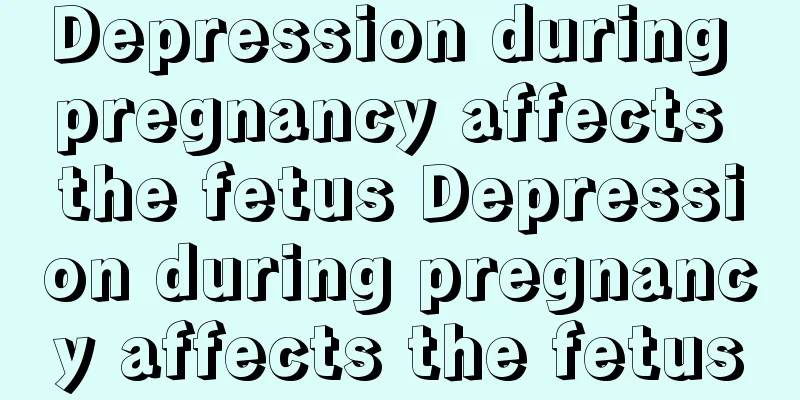What to do if your baby doesn't like to eat? Happy hunger therapy teaches you

|
Many children don't like to eat, but how can they not eat when they are growing? This makes parents very anxious. So what should we do if the baby doesn't want to eat? The editor will teach you a few tricks to deal with the problem of baby not liking to eat. What to do if your baby doesn't like to eatThe first trick: To improve your baby’s appetite, you can put some effort into your baby’s food. Using bright colors and animal shapes can attract your baby’s attention and greatly increase his appetite. The second tip: Don’t give your child snacks before a regular meal. If your baby loves snacks, it will affect his or her regular meals. Tip 3: Let your child develop the habit of not playing with toys while eating, especially before eating. Before eating, you can cultivate the habit of putting down your toys and helping your mother serve the dishes, letting everyone sit down, and then eating with everyone. Reasons why babies don't like to eat1. Constant snacking, constant mouthfeeling, and a busy stomach will lead to gastrointestinal motility and secretion disorders. 2. Children have irregular eating habits and no fixed meal times. Meal times are prolonged or shortened, and normal gastrointestinal digestion patterns are disrupted, so children will not eat obediently. 3. One-sided pursuit of high nutrition, giving children meat, eggs and milk without restraint, damaging the gastrointestinal tract and causing indigestion. 4. Poor eating environment, playing while eating, or parents teasing or scolding while eating, making it impossible for the child to eat quietly 5. Parents pay too much attention to their children's eating, which makes the children develop a rebellious mentality and then resist by refusing to eat. Parents should be more relaxed about their children and let them eat more easily. 6. Zinc deficiency causes taste changes. To observe whether a child is zinc deficient, parents can judge by the tongue coating. The small protrusions on the tongue are mostly flat or atrophied compared to the tongue of a normal child. 7. Lack of exercise will reduce metabolism and the digestive function of the gastrointestinal tract will not be strengthened. You should develop good living and work habits. 8. Children who are sick may also have a decreased appetite and not like to eat. Taking too many medicines or abusing health supplements will increase the burden on gastrointestinal digestion and absorption, causing babies to not like to eat. These are what babies need.1. Protein: It is necessary for the baby's physical development. Babies aged 1 to 2 years old need 35 grams of protein per day, and babies aged 2 to 3 years old need 40 grams per day. The protein content is high in formula milk powder, meat (fish, poultry, livestock), eggs, beans and bean products. 2. Calcium: It is essential for bone growth. Active babies like to walk around and climb up and down, and they cannot do this without strong bones. Let your baby eat more seafood, soy products, dairy products, eggs, and root vegetables, because these foods are rich in calcium. 3. Zinc: It is an important growth factor. Babies aged 1 to 3 years old are learning and practicing new movements every day. If they lack zinc, how can their movement development indicators not meet the standards? In addition, zinc can help strengthen the immune system, which is beneficial to the body's health, and resist infection and disease. To supplement zinc, you should eat more seafood, animal liver, 4. fish, eggs, milk, meat, beans and nuts. 4. Iron: It is an essential element for the development of baby's motor function. If babies aged 1 to 3 lack iron, their motor ability may be hindered. Therefore, eat more iron-supplementing foods, such as animal liver, seaweed, kelp, black fungus, mushrooms, sesame paste, red meat, walnut kernels, beans, etc., to help babies become little "athletes". 5. Vitamins: Vitamin A plays an important role in the retina's photosensitivity. If you want your baby to have a clear mind and bright eyes, you can't do without VA. Vitamin D can promote calcium absorption. Vitamin B12 is very important for the neurological development of growing babies. It is found in high amounts in animal liver, meat, dairy products, fish, shellfish and eggs. Happy hunger therapyWhen it comes to not liking to eat and difficulty in feeding, Dr. Cui recommends a "happy hunger therapy", which has been proven to work - when eating, eat with your baby, or let your baby watch adults eating happily, but if he doesn't want to eat, never force him to eat. After 30 minutes, clean up all the food and the meal is over. Before the next meal, no other food is provided except water. It is important not to let the child see any food during this period, and don't use food to make the child angry. Adults and children eat nothing together. At the next meal, it is still a 30-minute meal time, and adults eat happily for the children to see. Many children will eat happily at this time. If they still don't eat, repeat the above process. This method requires the cooperation of the whole family. No one should secretly feed the child at non-meal time, otherwise the child will still not be hungry at the next meal time and will not eat well. |
<<: How to supplement nutrition if the baby is too thin
>>: What causes zinc deficiency in babies? Pay attention to these 8 aspects
Recommend
What are the symptoms of ADHD in children? How to treat ADHD in children
Children are usually very curious about everythin...
Pick up your child from school: 3 things parents should avoid
The first thing is uncivilized behavior. If paren...
Can I breastfeed if my mother has a cold? If the temperature exceeds this, I can't
If it is a common cold and the temperature is ove...
Can I still have a baby with an ectopic pregnancy? Can I still have a baby with an ectopic pregnancy?
For mothers who want a baby, ectopic pregnancy is...
How to strengthen the education of children who are impetuous and impatient? How to do psychological education for children?
The issue of children's education has always ...
The main reason for infant spitting up milk and the treatment method for infant spitting up milk
Usually, many babies will spit up or spit up milk...
Will baby's milk rash heal on its own? What should I do about baby's milk rash?
Many newborns have papules and red spots on their...
What should I do if my baby has a poor appetite? How to solve the problem of my baby's poor appetite
For many new parents, taking care of babies is no...
What should I do if the follicles develop slowly? The reason why the follicles grow slowly
With the development of today's society, the ...
How many months of pregnancy does it show? If you are pregnant early, is it a boy or a girl?
As the pregnancy time increases, the pregnant wom...
Can pregnant women drink Isatis root when they have a cold? Pregnant women should be cautious when taking medicine
Whether pregnant women can drink Isatis root when...
Which country's brand is Safeguard soap from? Can Safeguard soap be used to wash hair?
Safeguard soap is a common toiletries product in ...
Will episiotomy during normal delivery affect sex life? How long after episiotomy during normal delivery can I have sex?
Episiotomy during normal delivery is a common way...
What should I do if the fetus's umbilical cord is wrapped around the neck for a week? Can I still give birth naturally?
Umbilical cord around the neck is one of the fact...
How to teach your baby to walk? Parents should not rush
Many mothers are envious when they see other peop...









